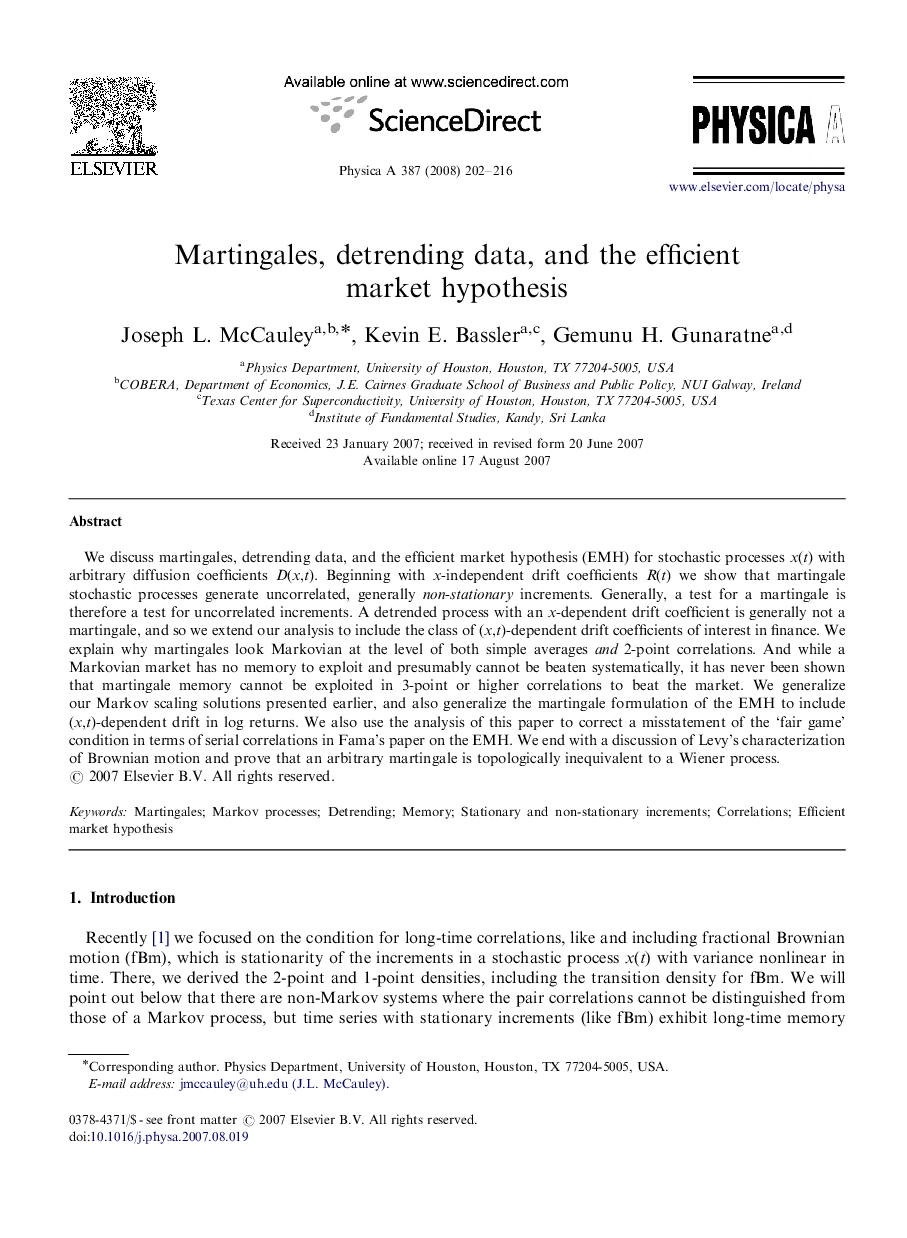| کد مقاله | کد نشریه | سال انتشار | مقاله انگلیسی | نسخه تمام متن |
|---|---|---|---|---|
| 975301 | 933023 | 2008 | 15 صفحه PDF | دانلود رایگان |

We discuss martingales, detrending data, and the efficient market hypothesis (EMH) for stochastic processes x(t) with arbitrary diffusion coefficients D(x,t). Beginning with x-independent drift coefficients R(t) we show that martingale stochastic processes generate uncorrelated, generally non-stationary increments. Generally, a test for a martingale is therefore a test for uncorrelated increments. A detrended process with an x-dependent drift coefficient is generally not a martingale, and so we extend our analysis to include the class of (x,t)-dependent drift coefficients of interest in finance. We explain why martingales look Markovian at the level of both simple averages and 2-point correlations. And while a Markovian market has no memory to exploit and presumably cannot be beaten systematically, it has never been shown that martingale memory cannot be exploited in 3-point or higher correlations to beat the market. We generalize our Markov scaling solutions presented earlier, and also generalize the martingale formulation of the EMH to include (x,t)-dependent drift in log returns. We also use the analysis of this paper to correct a misstatement of the ‘fair game’ condition in terms of serial correlations in Fama's paper on the EMH. We end with a discussion of Levy's characterization of Brownian motion and prove that an arbitrary martingale is topologically inequivalent to a Wiener process.
Journal: Physica A: Statistical Mechanics and its Applications - Volume 387, Issue 1, 1 January 2008, Pages 202–216